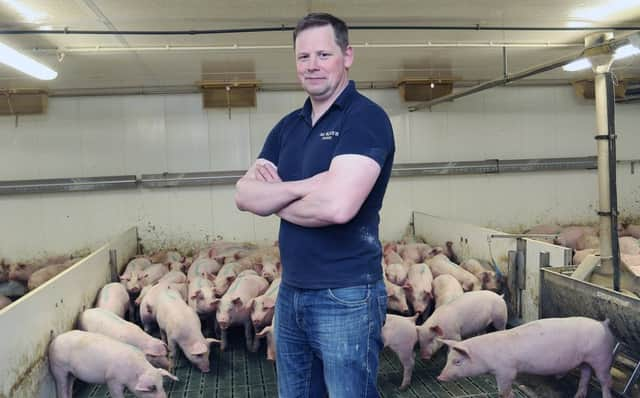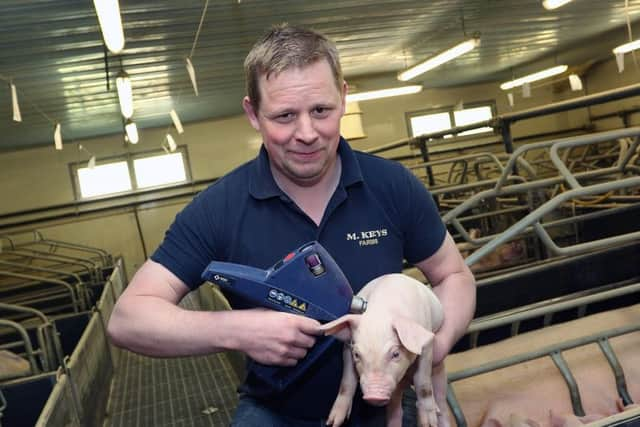Needle-free vaccine brings big advantages for Tyrone pig business


“We started using the IDAL (Intradermal Application of Liquids) system to vaccinate our pigs with Porcilis PCV ID just over six months ago and we are very happy with the results,” said Trevor Robinson, manager of the unit.
Porcilis PCV ID protects against PCV2 (Porcine circovirus type 2) one of the major disease threats in pig production. As well as offering all the advantages of needle-free vaccination, it gives six weeks longer protection than the previous 1 ml dose vaccine which was used by Trevor.
Advertisement
Hide AdAdvertisement
Hide Ad“The needle-free system is definitely easier on the pigs. It results in less pain and less stress. It has led to a big saving in time and labour and most importantly, pigs suffer no setback following vaccination.


“The fact that the vaccination site is not restricted to the neck adds greatly to the speed and ease of vaccination. This is very important on a farm like ours where 900 pigs are vaccinated every week,” said Trevor.
“It makes the vaccination job much easier. It reduces the risk of self-injection and eliminates the problem of breaking needles which can result in needle pieces remaining in the tissue, causing lesions. It also reduces the risk of transmitting disease from pig to pig,” he added.
Immunity
Thomas Gallagher of MSD Animal Health said the intradermal vaccine, given at three weeks of age or older, effectively controls viraemia and subclinical PCV2 during the critical finishing period. Its duration of immunity is 23 weeks after vaccination.
Advertisement
Hide AdAdvertisement
Hide Ad

Thomas gave details of field trials which showed that the vaccine gave uninhibited growth during the nursery period and protection from PCV2 during the finishing period. It also increased overall average daily gain and led to a reduction in mortality.
“PCV2 is such a ubiquitous virus that up to 100% of pigs can be positive to the disease. The virus replicates in individual pigs. Clinical signs include weight loss, enlarged lymph nodes, breathing difficulty, diarrhoea, pale skin and jaundice. Severe infection can result in mortality of up to 80%.
“Even apparently healthy pigs suffer poor performance. Infected pigs are susceptible to other diseases. The efficacy of other vaccination programmes is also reduced,” said Thomas.
He said intradermal vaccines are also available for M.hyo (Mycoplasma hyopneumoniae) and PRRSv (Porcine reproductive and respiratory syndrome virus), two other major disease threats in pigs and there is also a combined intramuscular vaccine available to protect against PCV2 and M.hyo at the same time.
Advertisement
Hide AdAdvertisement
Hide Ad“These innovations ensure that pig producers now have the most advanced and welfare-friendly vaccination methods to deal with three of the most important diseases affecting their business,” said Thomas.
Further information is available from your veterinary practitioner, the product SPC or MSD Animal Health, Red Oak North, South County Business Park, Leopardstown, Dublin 18, Ireland. Tel: +353 (0)1 297 0220. E-Mail: [email protected]. Web: www.msd-animal-health.ie